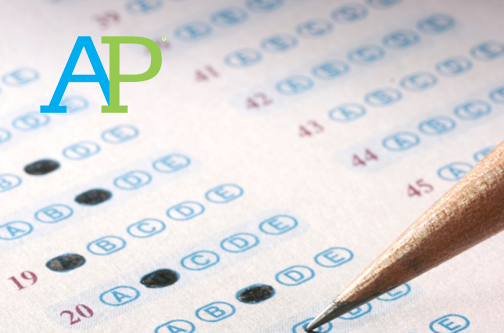Things Professors Wish Every First-Year Student Knew
This fall, nearly two million first-year students will head to college for the first time. For many, this milestone is filled with excitement, anticipation, trepidation, and—not surprisingly—anxiety. Is there any wonder why? There are plenty of changes in store—living away from home for the first time, sharing a tiny space with a complete stranger, and meeting peers from different cities, states, countries, and backgrounds, to name a few.
When it comes to academics, transitioning from a star high school student to a competent, mature, first-year college scholar can be challenging. As a former professor and the parent of three college graduates, I’ve witnessed my share of academic missteps (and successes) first-hand. So, if you’re headed to college for the first time this fall, here are some tips for academic success from Day 1 of your college career.
1. Manage Your Newfound “Free Time” as a First-year Student.
In high school, you likely spent much of your day in 6-7 classes. After school, your afternoons were filled with sports practices and games, spring musical rehearsals and performances, building robots, or debating hot social and political positions. You usually managed to get home in time for dinner before you cracked the books to prepare for the next day. But when you get to college, your daily schedule will dramatically shift.
Most significantly, your time in the classroom will be greatly reduced; it’s safe to anticipate only 2-3 classes each day, each running 50-75 minutes. So, unless you’re a student-athlete, you may feel you have loads of free time. Unfortunately, this newfound freedom can lead to underestimating your academic workload, leaving you feeling overwhelmed and stressed when the bulk of your work is due at the end of the term. The good news is that you can avoid falling into this time-crunch trap.
At the start of each term, schedule study time into your days—whether before, between, or after classes. Become a regular at the library, local coffee house, or a comfortable study space for a few hours each day to stay ahead of the readings. Break down larger projects and papers into smaller, more manageable tasks and tackle them over weeks instead of days. And, don’t be afraid to say “no” to tempting activities—sometimes called “time sinks”—that steal productive hours from your day (think social media, gaming, hanging out with friends, or binge-watching your favorite show). Instead, use these activities as rewards once you’ve finished your work for the day.
2. Read and Refer Often to the Course Syllabus.
For every college course, you will receive a syllabus—a carefully curated document that serves as a guide to course expectations. The syllabus contains important information, including course objectives, assignments, a calendar with due dates and exam dates, the grading scale, contact info, office hours, and more. It is typically found in the college’s online learning management system (for example, Canvas).
Read each course syllabus carefully (ideally before your first day of class) and transfer critical dates and deadlines into your calendar with reminders to keep you on track. If you have questions about the syllabus, reach out to the professor. Refer to it regularly throughout the course, especially before approaching an instructor with questions. “It’s on the syllabus” is a frequent response for professors.
3. Show Up to Class.
Unless you’re ill, make a point to attend every class as a first-year student and later on in your college career. Showing up, physically and mentally (you’re not going to understand the material through osmosis), allows you to review complex material and get answers to your questions. Maximize your absorption of the material and participation by completing readings and other assignments before class.
Arrive to class early so you can sit in the front 1-3 rows or in the “T-section,” especially in a large, auditorium-style classroom. Take notes in a notebook or, if allowed, on your computer, but don’t hide behind your computer! Professors can tell the difference between students who use their MacBooks or PCs to take notes and those who instead peruse their social media accounts, watch the latest sports highlights, or shop for the hottest new sneakers.
4. Communicate with Professors.
Need clarification about a chemistry problem? Not sure how to format a paper? Concerned about your latest quiz grade? That’s what professors’ office hours are for! (Hint: office hours are listed in the syllabus.) Knock on their office door and politely ask if they have a few moments to explain a confusing concept, review the results of a particularly challenging quiz, or recommend preparation strategies to help you do better on the next exam. Not only will you get the help you need, but you’ll also cultivate a healthy relationship—one you may need when it’s time to secure recommendation letters for an internship, research position, job, or graduate school application.
5. Connect with Fellow First-year and Returning Students.
I’m sure you’ve heard the phrase, “Two heads are better than one.” And so it is with college coursework. Fellow students make excellent “study buddies,” so try to befriend at least one person in every class. Even better, put together a study group. You will likely discover that studying with other students allows for a robust exchange of ideas and perspectives, improving retention and recall of information. Furthermore, regularly scheduled study groups make you accountable. It’s harder to blow off studying when your friends are counting on you!
6. Take Advantage of Campus Resources.
Your college offered you a spot in the class because they knew you’d be a successful student. To support that success, colleges offer support services to assist students along their college journeys. Your tuition often includes access to tutors and writing centers to help you prepare for tests, papers, and other assignments. Your academic advisor is well-versed in major and general education requirements, how to switch majors, and how to drop or add a class. Spending time in the library? Librarians are an incredible but often overlooked resource for students searching for journals, peer-reviewed articles, videos, and other materials required for research papers and projects.
For first-year college students, mastering academic expectations during the first quarter, semester, and even the first year of college can seem daunting. But planning ahead, properly managing your time, building supportive relationships, and utilizing campus resources can help you make the jump from high school to college with confidence.
At Moxie College Counseling, we help high school and college-bound students effectively map out goals and plans to reach those goals. One of the services we offer is first year transition counseling to help students successfully adjust to a more independent lifestyle in college. For more information about this or any of our other services, please contact us.
Share this article

Follow us
A quick overview of the topics covered in this article.
Latest articles
Reading Time : 3 mins
Reading Time : 4 mins
Reading Time : 3 mins




